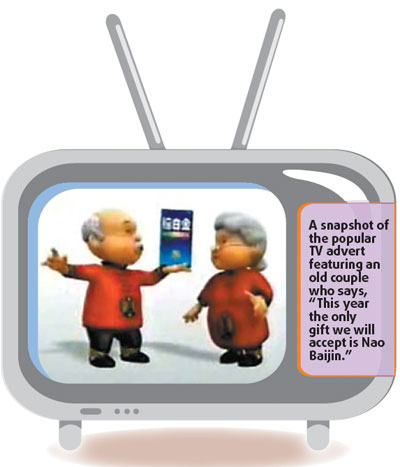

Giant Group CEO Shi Yuzhu's tumultuous journey as an entrepreneur since 1989 has made him a legend in China's business community.
In 1984 after graduation from Zhejiang University, Shi took his first job as a public servant in Anhui province but the boring job pushed him to leave for Shenzhen, the boomtown bordering Hong Kong where he completed a Master's degree in software in 1989. Then by developing a word-processing system he started up his own business in Shenzhen with 4,000 yuan.
He was quick to realize the power of advertising and marketing. Cash-strapped Shi was not able to afford to buy ads, so he asked for a deferred payment, a rare practice in the advertising sector. But China Computer World (CCW), one of the most influential publications in China's information technology industry, agreed. Shi then placed half-page ads in CCW and promised to pay 17,000 yuan within 15 days or close his company to pay the debt.

In the 13th day after the ad placement, Shi secured three orders with a total value of about 20,000 yuan, which saved his start-up from the brink of bankruptcy. In October 1989 Shi made his first million. But to many people's surprise, Shi spent all the money on advertisements, which boosted his orders.
In 1992 Shi relocated his corporate headquarters to Zhuhai, a city in Guangdong province which was friendlier to private businesses. Shi named his business Giant Group, which was inspired by IBM's nickname Big Blue.
In 1993, the revenue of Giant Group surged to 360 million, making it the second largest privately held technology company in China. Shi's career reached the first peak with government officials starting to lavish laurels and praises anointing him as a model young entrepreneur and Giant Group as the icon of Zhuhai. That year the local government also awarded Shi with an apartment, an Audi and 630,000 yuan to encourage the entrepreneurship spirit in the city. And even State leaders started making frequent visits to Giant Group.
However, soon Giant Group took a hit when Western countries starting relaxing a ban on exports of computers and software products to China. Foreign software makers swarmed to China, which squeezed Giant Group which had been relying heavily on software sales.
But Shi managed an immediate turnaround by expanding into the real estate and healthcare sectors. An aggressive nationwide marketing campaign made his healthcare product, Nao Huangjin pills, or Brain Gold, a best seller. Shi bombarded Chinese consumers with advertisements placed on TV stations at all levels, even including county-level cable TV stations, with a budget of nearly 100 million yuan.
The blitz paid off. Shi made 1 billion yuan in sales revenue and his name as well as Nao Huangjin a household name in the country.
However, the intensive marketing, along with the alleged exaggerated effects of Brain Gold, also made Shi one of the most controversial entrepreneurs in China.
The instant success seemed to drain Shi's rational thinking. He then set an ambitious goal to increase Giant Group's annual revenue to 10 billion yuan by 2000 and as a symbol of his success he decided to build an 18-story skyscraper, which finally crushed his business empire.
The blueprint of the skyscraper was revised several times with the number of planned floors reaching 38, then 54 and finally hitting 72 with a budget of 1.2 billion yuan.
Many senior government officials reportedly played a role in revising the blueprint in order to encourage Shi to build the country's highest skyscraper. Underlining that, the local government sold the 30,000 sq m of land to Shi at a price of only 125 yuan per sq m.
The overinvestment broke Shi's cash flow at a time when the government began to tighten its monetary policy to cool down the overheated economy. The unfinished Giant Building in Zuhai did not become a symbol of Shi's success, but instead his shame.
In 1997 Giant Group collapsed with Shi in debt of 200 million yuan and his reputation in shatters.
Shi's career hit its lowest ebb and made him "the most-known loser" in China's business circle. In 1998 "I was even unable to afford an air ticket and mobile phone bill," he recalls.
Turnaround
However, that's not the end of Shi's story. After staying out of media spotlight for a while, he unveiled another healthcare product, an alleged sleep aid called Nao Baijin, or Brain Platinum.
Shi bought up prime advertising on TV channels and bombarded consumers with its slogan, "This year the only gift we will accept is Nao Baijin". The advertisement was so intensive that it was criticized as one of the worst ads on TV. But it was also the best known among Chinese consumers.
Sales of Nao Baijin reached up to 100 million yuan per month and it enabled Shi to pay all of his debts and restore his tarnished business reputation.
Shi was also undaunted by his failure in business diversification in the 1990s. He started acquiring stakes in listed companies including two private banks and made more than 10 billion yuan. In 2003, he sold the Nao Baijin trademark as well as 75 percent of its distribution networks for 1.17 billion yuan.
With ample cash in hands, Shi founded the online gaming firm Giant Interactive in 2004 and got it listed in New York last year.
ZT Online, a MMORPG (massively multiplayer online role-playing game), developed by Giant, is now the most popular online game in China. ZT, or Zhengtu, means journey in English. In March, its second self-developed game Giant Online started open beta testing.
For Shi, his new journey as an entrepreneur has just begun. "I believe the life cycle of ZT Online could last at least 20 years," he says.
(China Daily 04/28/2008 page12)













